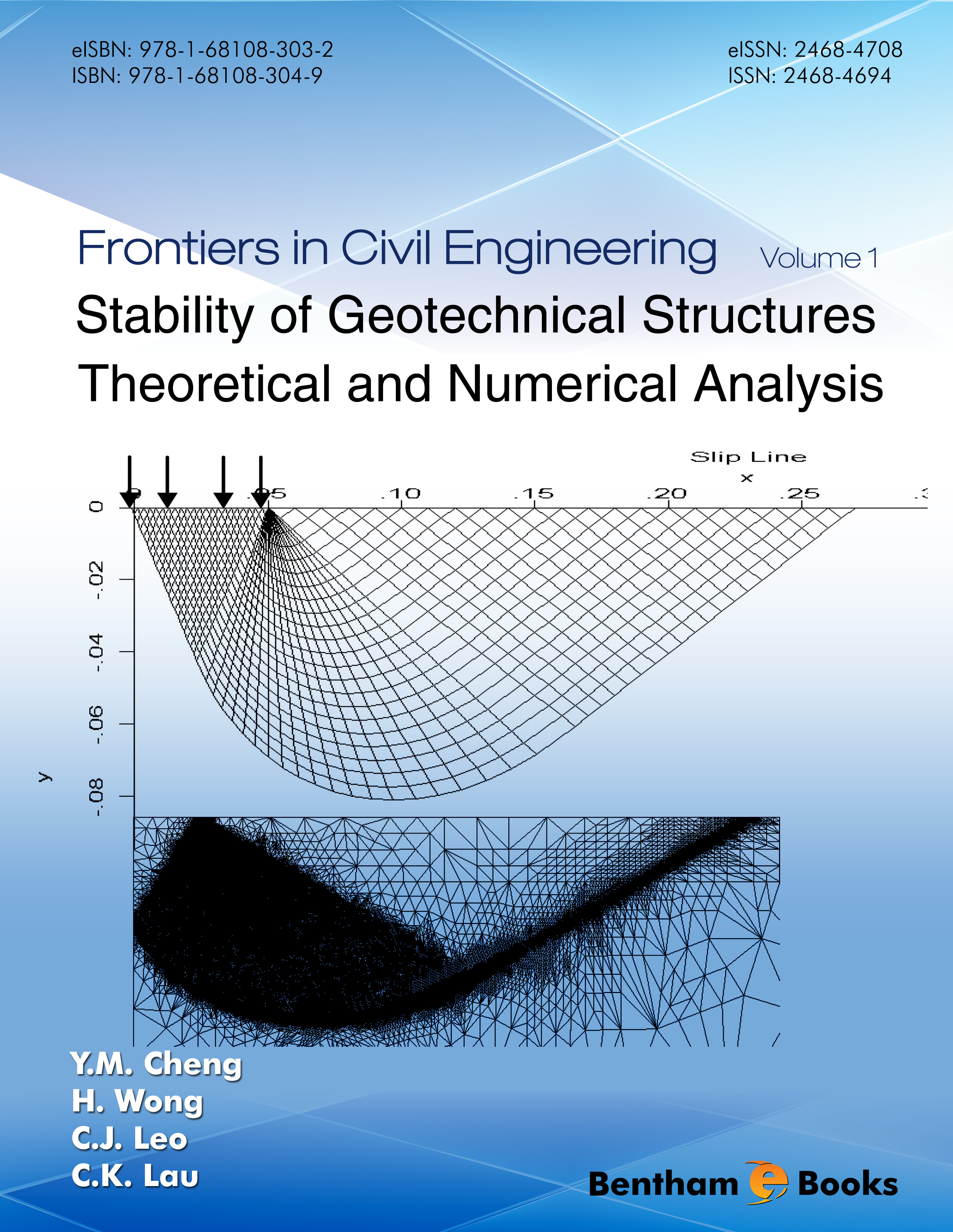Due to the difficulty to define the initial stress and boundary conditions, the loading paths as well as the constitutive model of geomaterials, stability analysis has always been a very important discipline in geotechnical engineering. Towards this, engineers will assess the ultimate conditions where the strength of the system is fully mobilized. The facture of failure or the collapse load will then be assessed based on the ultimate analysis which is considered to be unaffected by the initial conditions of the system.
This book will introduce the fundamental concepts and applications of plasticity theory, limit equilibrium, and limit analysis in geotechnical engineering. These concepts will be illustrated using analytical examples whenever possible in order to enhance understanding at a fundamental level and can also be used to make preliminary estimates of geotechnical stability. In parallel, suitable numerical methods and advanced computational tools will be introduced for the engineers to solve theoretical and geotechnical problems of practical interests which require greater detailed consideration.
This book deals with the challenging subject matter in a systematic fashion, from a theoretical standpoint to practice in the real world. For this reason, the book is divided into 3 parts. In part 1, the fundamental concepts in plasticity, limit equilibrium, limit analysis and instability for geomaterials are presented as a first step in introducing readers as the theoretical basis. Analytical and semi-analytical solutions are then discussed in Part 2, with liberal use of illustrative examples, as a further step to shed insights and reinforce the underlying principles embodied in the theory. Finally in Part 3, examples utilising advanced computational tools like the finite element and discrete element methods are covered for the purpose of elucidating the complexity of dealing with stability problems of the real world using numerical approaches.
A particular feature of this book is that it stresses the rigorous formulation as much as the computational techniques to tackle stability problems. It is noted that the solution of these problems is far from trivial. The search of failure load and the corresponding failure mechanism involve the constrained optimisation of discontinuous objective functions containing multiple optimum points. In short, this book is an attempt to present within a single volume the fundamentals as well as the practical developments of stability analysis in geotechnical engineering in an easily accessible manner. Most of the materials are either based on the research works from the authors or the teaching materials to the postgraduate students.
This book is aimed at researchers and engineers working in the field of geotechnical engineering having to make design decisions concerning the stability and the risk of failure of geotechnical structures. These include natural and man-made slopes, dams, shallow or deep foundations, soil retaining structures, embankments, road or railway tunnels, large scale underground structures including for underground storage of nuclear wastes or CO2 sequestration.
Acknowledgements
The authors would like to acknowledgement the support from the project “Theory, Analysis and Monitoring of Landslides and Debris Flows” (account ZVCR) for parts of the works in this book.
Conflict of Interest
There is not any conflict of interest for the content of this book with any project, universities or parties.
Y.M. Cheng
Department of Civil and Environmental Engineering
Hong Kong Polytechnic University
Hong Kong
Tel: 852-27666042
Fax: 852-23346389
ceymchen@polyu.edu.hk
H. Wong
LTDS (UMR 5513), ENTPE,
Université de Lyon,
France
Tel: 33-4-72047268
Fax: 33-4-72047156
wongkwaikwan@gmail.com
C.J. Leo
LSchool of Computing, Engineering and Mathematics
University of Western Sydney,
Locked Bag 1797
Penrith NSW 2751
Australia
Tel: 61-2-47360058
Fax: 61-2-47360833
c.leo@uws.edu.au
C.K. Lau
Fong On Geotechnics Limited
Hong Kong
Tel: 852-28930444
Fax: 852-28345887
ckl@fong-on.com.hk

